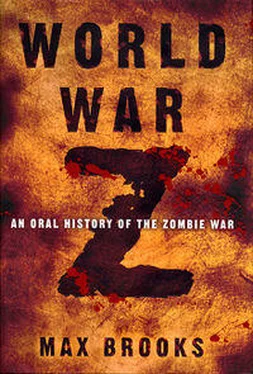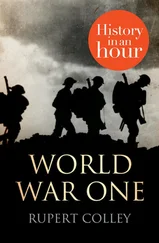You ever hear about that experiment an American journalist did in Moscow in the 1970s? He just lined up at some building, nothing special about it, just a random door. Sure enough, someone got in line behind him, then a couple more, and before you knew it, they were backed up around the block. No one asked what the line was for. They just assumed it was worth it. I can’t say if that story was true. Maybe it’s an urban legend, or a cold war myth. Who knows?
[I stand on the shore with Ajay Shah, looking out at the rusting wrecks of once-proud ships. Since the government does not possess the funds to remove them and because both time and the elements have made their steel next to useless, they remain silent memorials to the carnage this beach once witnessed.]
They tell me what happened here was not unusual, all around our world where the ocean meets the land, people trying desperately to board whatever floated for a chance of survival at sea.
I didn’t know what Alang was, even though I’d lived my entire life in nearby Bhavnagar. I was an office manager, a “zippy,” white-collar professional from the day I left university. The only time I’d ever worked with my hands was to punch a keyboard, and not even that since all our software went voice recognition. I knew Alang was a shipyard, that’s why I tried to make for it in the first place. I’d expected to find a construction site cranking out hull after hull to carry us all to safety. I had no idea that it was just the opposite. Alang didn’t build ships, it killed them. Before the war, it was the largest breakers yard in the world. Vessels from all nations were bought by Indian scrap-iron companies, run up on this beach, stripped, cut, and disassembled until not the smallest bolt remained. The several dozen vessels I saw were not fully loaded, fully functional ships, but naked hulks lining up to die.
There were no dry docks, no slipways. Alang was not so much a yard as a long stretch of sand. Standard procedure was to ram the ships up onto the shore, stranding them like beached whales. I thought my only hope was the half dozen new arrivals that still remained anchored offshore, the ones with skeleton crews and, I hoped, a little bit of fuel left in their bunkers. One of these ships, the Veronique Delmas, was trying to pull one of her beached sisters out to sea. Ropes and chains were haphazardly lashed to the stern of the APL Tulip, a Singapore container ship that had already been partially gutted. I arrived just as the Delmas fired up her engines. I could see the white water churning as she strained against the lines. I could hear some of the weaker ropes snap like gunshots.
The stronger chains though… they held out longer than the hull. Beaching the Tulip must have badly fractured her keel. When the Delmas began to pull, I heard this horrible groan, this creaking screech of metal. The Tulip literally split in two, the bow remaining on shore while the stern was pulled out to sea.
There was nothing anyone could do, the Delmas was already at flank speed, dragging the Tulip’s stern out into deep water where it rolled over and sank within seconds. There must have been at least a thousand people aboard, packing every cabin and passageway and square inch of open deck space. Their cries were muffled by the thunder of escaping air.
Why didn’t the refugees just wait aboard the beached ships, pull up the ladders, make them inaccessible?
You speak with rational hindsight. You weren’t there that night. The yard was crammed right up to the shoreline, this mad dash of humanity backlit by inland fires. Hundreds were trying to swim out to the ships. The surf was choked with those who didn’t make it.
Dozens of little boats were going back and forth, shuttling people from shore to ships. “Give me your money,” some of them would say, “every-thing you have, then I’ll take you.”
Money was still worth something?
Money, or food, or anything they considered valuable. I saw one ship’s crew that only wanted women, young women. I saw another that would only take light-skinned refugees. The bastards were shining their torches in people’s faces, trying to root out darkies like me. I even saw one captain, standing on the deck of his ship’s launch, waving a gun and shouting “No scheduled castes, we won’t take untouchables!” Untouchables? Castes? Who the hell still thinks like that? And this is the crazy part, some older people actually got out of the queue! Can you believe that?
I’m just highlighting the most extreme negative examples, you understand. For every one profiteer, or repulsive psychopath, there were ten good and decent people whose karma was still untainted. A lot of fishermen and small boat owners who could have simply escaped with their families chose to put themselves in danger by continuing to return to shore. When you think about what they were risking: being murdered for their boats, or just marooned on the beach, or else attacked from beneath by so many underwater ghouls…
There were quite a few. Many infected refugees had tried to swim for the ships and then reanimated after they drowned. It was low tide, just deep enough for a man to drown, but shallow enough for a standing ghoul to reach up for prey. You saw many swimmers suddenly vanish below the surface, or boats capsize with their passengers dragged under. And still rescuers continued to return to shore, or even jumped from ships to save people in the water.
That was how I was saved. I was one of those who tried to swim. The ships looked much closer than they actually were. I was a strong swimmer, but after walking from Bhavnagar, after fighting for my life for most of that day, I barely had enough strength to float on my back. By the time I reached my intended salvation, there wasn’t enough air in my lungs to call for help. There was no gangway. The smooth side towered over me. I banged on the steel, shouting up with the last bit of breath I had.
Just as I slipped below the surface, I felt a powerful arm wrap around my chest. This is it, I thought; any second, I thought I would feel teeth dig into my flesh. Instead of pulling me down, the arm hauled me back up to the surface. I ended up aboard the Sir Wilfred Grenfell, an ex-Canadian Coast Guard cutter. I tried to talk, to apologize for not having any money, to explain that I could work for my passage, do anything they needed. The crewman just smiled. “Hold on,” he said to me, “we’re about to get under way.” I could feel the deck vibrate then lurch as we moved.
That was the worst part, watching the other ships we passed. Some of the onboard infected refugees had begun to reanimate. Some vessels were floating slaughterhouses, others just burned at anchor. People were leaping into the sea. Many who sank beneath the surface never reappeared.
[Sharon could be considered beautiful by almost any standard — with long red hair, sparkling green eyes, and the body of a dancer or a prewar supermodel. She also has the mind of a four-year-old girl.
We are at the Rothman Rehabilitation Home for Feral Children. Doctor Roberta Kelner, Sharon’s caseworker, describes her condition as “lucky.” “At least she has language skills, a cohesive thought process,” she explains. “It’s rudimentary, but at least it’s fully functional.” Doctor Kelner is eager for the interview, but Doctor Sommers, Rothman’s program director, is not. Funding has always been spotty for this program, and the present administration is threatening to close it down altogether.
Sharon is shy at first. She will not shake my hand and seldom makes eye contact. Although Sharon was found in the ruins of Wichita, there is no way of knowing where her story originally occurred.]
Читать дальше












